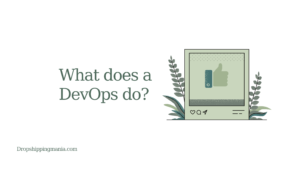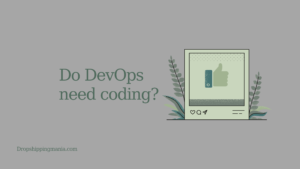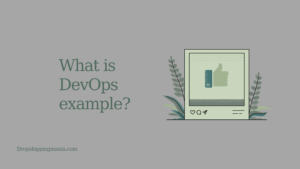DevOps

The term DevOps has been gaining more traction in the IT industry lately, but what exactly is it? DevOps is a set of practices that combines software development (Dev) and information technology operations (Ops). The goal is to shorten the systems development life cycle while delivering features, fixes and updates frequently. By bringing together these two disciplines, organizations can build software faster, have better quality products and services, and reduce time to market for new products and services. In this article, we will look at the benefits of DevOps, what it takes to implement it within an organization, and how it can be used as part of an agile workflow.
What does a DevOps do?

A DevOps Engineer is responsible for the smooth integration and operation of software development and IT operations. They work with developers to ensure that code changes are made in a controlled and consistent manner, and they work with IT operations staff to ensure that those changes are properly implemented. In addition, DevOps Engineers often help to automate tasks across the software development life cycle, making it easier for teams to work together efficiently.
Do DevOps need coding?

DevOps is a set of practices that combines software development (Dev) and information technology operations (Ops) to shorten the systems development life cycle and deliver features, fixes, and updates faster and more reliably.
The main goal of DevOps is to increase efficiency and effectiveness by unifying these two functions. But do DevOps need coding? The answer is no – you don’t need to be a coder or developer to work in DevOps. While coding skills are helpful, they’re not required.
There are many different roles within a DevOps team, from developers to testers to ops engineers. What’s important is that you have a strong understanding of the software development process and are able to effectively communicate with both developers and ops staff.
So if you’re looking to get into DevOps and don’t have any coding experience, don’t worry – there are still plenty of options for you.
What is DevOps example?

In order to fully understand DevOps, it is important to first understand what it is not. DevOps is not a software development methodology or a tool. Rather, it is a set of practices that aim to unify software development (Dev) and operations (Ops). The goal of DevOps is to shorten the software development life cycle and provide continuous delivery and deployment of code.
There are many different tools that can be used in conjunction with DevOps practices, but there is no one-size-fits-all solution. The most important thing is to choose the right tools for your specific needs.
One popular DevOps example is the use of automation tools like Puppet, Chef, and Ansible. These tools can help manage infrastructure and deployments. Other common examples include the use of continuous integration/continuous delivery (CI/CD) tools like Jenkins and Travis CI.
Is DevOps is easy or python?
No, DevOps is not easy. It requires a lot of coordination and communication between teams to work effectively. Python can be used to automate some of the tasks involved in DevOps, but it is not a silver bullet.
How do I start beginner DevOps?

There are a few things you need to do to get start with DevOps:
1. Choose the right tools for your project. There are many different options available, so do some research to find the best fit for your needs. Some popular choices include Puppet, Chef, and Ansible.
2. Implement continuous integration and delivery (CI/CD) pipelines. These will help automate the process of code development, testing, and deployment.
3. Use containers to package up your applications and make them easy to deploy. This will allow you to quickly spin up new instances of your app as needed.
4. Monitor your system closely and create alerts to notify you of any issues that arise. This way you can quickly address any problems that come up and keep your system running smoothly.
Will AI replace DevOps?
No, AI will not replace DevOps. However, AI can help to automate some of the tasks that are currently perform by thisprofessionals. This could lead to a reduction in the need for human intervention in the DevOps process. Which could make it faster and more efficient. Additionally, AI can help to identify areas where errors are likely to occur, which could help to reduce the number of potential problems.
Do DevOps engineers write code?
Yes, DevOps engineers write code. In fact, they are responsible for writing code that helps to automate the various tasks that they perform. This includes writing code that helps to provision and configure infrastructure, as well as code that helps to monitor and manage applications.
Which is better agile or DevOps?

There is no simple answer to the question of whether agile or DevOps is better. Both approaches have their own advantages and disadvantages, and which one is better for a given organization depends on that organization’s specific needs and goals. However, we can generalize some of the key differences between these two approaches.
Agile focuses on delivering value to customers quickly and efficiently, while DevOps emphasizes collaboration between development and operations teams to optimize the entire software delivery process. Both approaches aim to improve the quality of software products and shorten the time it takes to get those products to market.
Agile methodologies are typically more adaptable and flexible than DevOps processes. Which can make them better suited for organizations that need to rapidly respond to changes in customer demands or market conditions. DevOps processes, on the other hand, tend to be more predictable and repeatable, which can make them more efficient overall and better suited for organizations with large scale software deployments.
Ultimately, there is no right or wrong answer when it comes to choosing between agile or DevOps. The best approach for a given organization depends on that organization’s specific needs and goals.
For more informative articles visit this link


